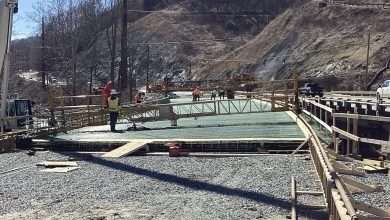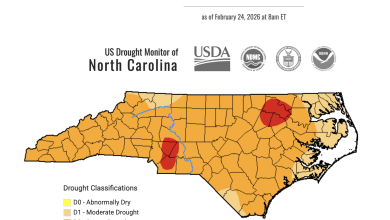
Last Updated on November 27, 2023 10:44 am
BOONE, N.C. — In fiscal year 2021–22, Appalachian State University generated an estimated $573 million in added income for the five-county regional economy through operations, construction, visitor, and student spending; volunteerism; and the increased earnings and productivity of alumni. Statewide, the estimated economic impact of App State was $2.2 billion.
App State’s impacts on the regional and statewide economies and benefits for students, taxpayers and society were assessed in an economic impact study conducted by Lightcast, a labor analytics firm, for the year beginning July 1, 2021, and ending June 30, 2022. A full report on the study will be available in the coming weeks.
The region assessed in the report included the counties of Watauga, Ashe, Avery, Caldwell and Wilkes.
“These statistics demonstrate the power of higher education to change lives,” said App State Chancellor Sheri Everts. “Our students, faculty, staff and alumni stand as living examples of the difference a college degree makes — not only for ourselves and for each subsequent generation, but also for our communities and state, and for the world.”
Economic impacts
Direct spending by the university results in more spending across other businesses throughout the regional and statewide economies — also known as multiplier effects, Lightcast explained. The firm’s economic impact analysis assessed the additional income created in the region and state by the activities of the university itself as well as its students, visitors and alumni, accounting for a number of alternative scenarios to find the net impact and exclude any impacts that would have been created in the regional and state economies if the university did not exist.
For example, for statewide economic impact estimates, the study considered the impacts created by students and visitors who were drawn to the university from outside the state — who otherwise might not have contributed to the North Carolina economy — and the difference in income that would have been generated if in-state private and public funding of App State had been allocated to other industry sectors instead.
The $573 million net impact of the university on the region is equivalent to supporting 8,902 jobs, the study found — or one out of every 14 jobs in the five counties.
The regional and statewide economic impact figures are the sum of estimated net impacts in the following categories:
- Operations: Spending by the university on expenses such as payroll, facilities, supplies and professional services generated approximately $308.2 million in added income to the five-county region in 2021–22. Statewide, the net impact of App State’s operations spending was $276 million.
- Construction: App State invests in construction each year to maintain and renovate its facilities, create additional building capacities and meet growing educational demands. While the amount will vary from year to year, in FY 2021–22, App State’s construction spending generated $31.6 million in added regional income and $34.6 million in added statewide income.
- Visitors: Tens of thousands of out-of-region visitors attracted to the five-county region for activities at App State brought new dollars to the area’s economy through their spending at hotels, restaurants, gas stations and other regional businesses, adding approximately $9.5 million in income in 2021–22. Statewide, the net impact of visitors drawn to the university from out of state was $6.5 million. The study notes that the COVID-19 recovery period significantly reduced the FY 2021–22 visitor spending impact.
- Students: Approximately 82% of students who attended App State’s Boone campus in 2021–22 originated from outside the region, and in addition, some local students would have left the region if not for the existence of App State. Their expenditures added income of $79.5 million to the regional economy in 2021–22. Likewise, 8% of App State students originated from outside of North Carolina, and some N.C. residents would have left the state if not for the presence of App State — their impact on statewide income was a net $32.6 million, the study estimated.
- Volunteerism: App State encourages students and employees to volunteer in the five-county region, allowing businesses and organizations to grow, increase their output and impact the economy at large. App State students and employees volunteered nearly 78,500 hours of their time in FY 2021–22, generating net economic impacts of $3.4 million regionally and $5.2 million statewide.
- Alumni: The impact from App State alumni’s increased earnings and the enhanced productivity of the businesses that employ them in the five-county region amounted to $140.7 million in added income in 2021–22, the report calculated. Statewide, the impact was even greater, as the tens of thousands of App State grads employed across North Carolina generated $1.9 billion in added income.
Return on investment
Utilizing an investment analysis, the economic impact study also found that an App State education generates a positive return on investment for students, taxpayers and society.
- Students: For every $1 invested by App State students on tuition, fees, supplies, student loan interest and deferred employment earnings in 2021–22, they will gain $5.80 in higher lifetime earnings, the study calculated. Compared to high school graduates in North Carolina, App State graduates see average increased earnings of $31,100 per year with bachelor’s degrees, $44,800 per year with master’s degrees and $68,200 per year with doctorates.
- Taxpayers: For every $1 of public funding invested in App State in 2021–22, over the course of students’ working lives, North Carolina taxpayers will gain $3.20 in increased tax revenue and public sector savings from reduced demand for government-funded social services, according to the study.
- Society: For every $1 society invested in App State in 2021–22 — including university expenditures, student expenses and students’ deferred earnings — over the course of students’ careers, the state of North Carolina will receive $9 in benefits, including added statewide revenue as well as social savings due to reduced crime, lower welfare and unemployment assistance and the increased health and well-being of people in North Carolina, the study surmised.


















